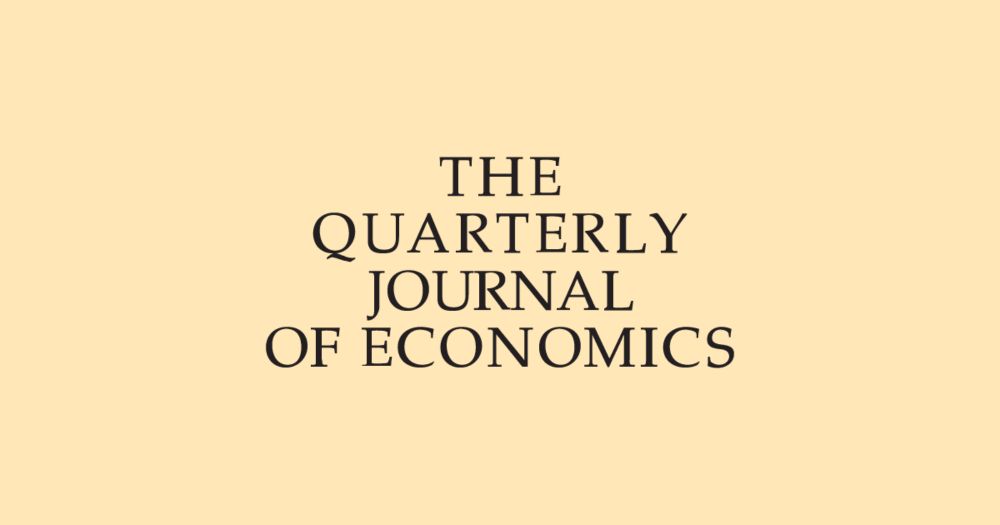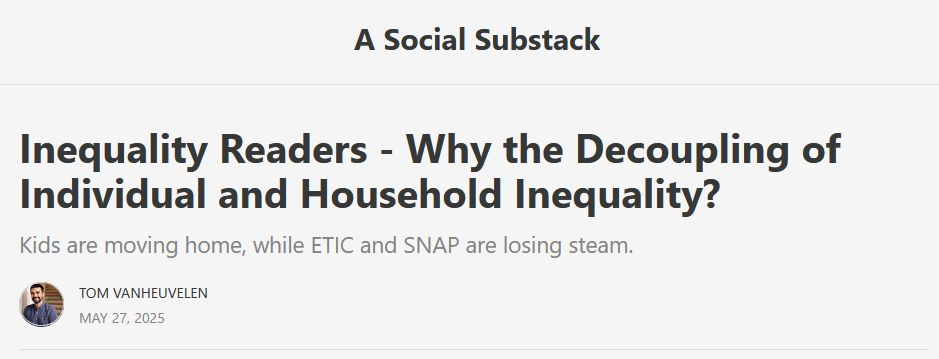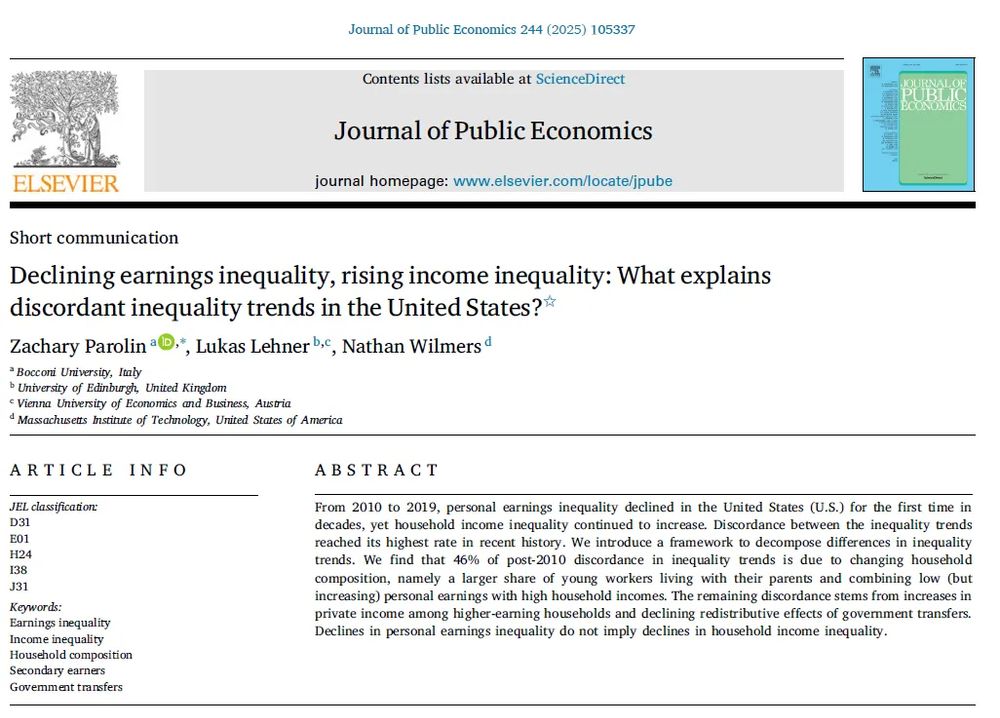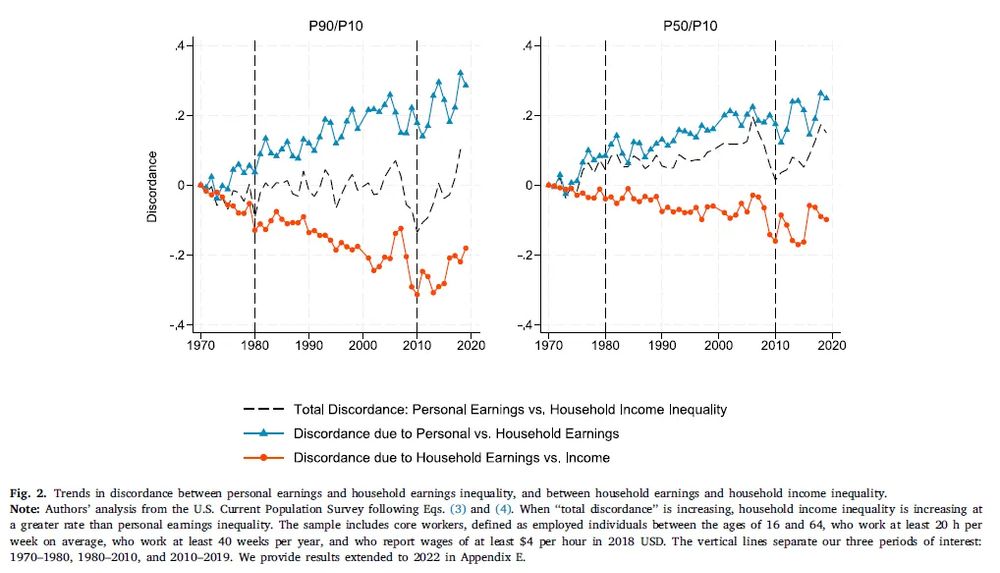



Two inspiring days at the Nuffield Politics of AI workshop!
This was social science at its best, thanks to all involved! @benansell.bsky.social @jburnmurdoch.ft.com @nuffieldcollege.bsky.social
@mhaslberger.bsky.social
Postdoc @ Uni St. Gallen. Research on AI, tech. change, employment, wealth inequality, comparative education. https://matthiashaslberger.github.io




Two inspiring days at the Nuffield Politics of AI workshop!
This was social science at its best, thanks to all involved! @benansell.bsky.social @jburnmurdoch.ft.com @nuffieldcollege.bsky.social

📚 And if the article piques your interest, here is the link to the full paper: www.tandfonline.com/doi/full/10....
04.11.2025 13:31 — 👍 0 🔁 0 💬 0 📌 0
🤔 You're interested in how exposure to AI affects people's risk perceptions and policy preferences, but don't have time to read a full paper?
💡 @unisg.ch has got you covered with a write-up about our recent paper in @jeppjournal.bsky.social.
www.unisg.ch/en/newsroom/...
Sign-up link: forms.gle/1PaNbatuZbTW...
We're grateful for generous support from @nuffieldcollege.bsky.social and the Centre for Advanced Social Science Methods/DPIR.
The in-person workshop is open to the academic community; you can use the link in the next post to sign up. If you're interested in hearing about and discussing citizen perceptions, preferences, and priorities around AI with a stellar group of researchers, this might be for you.
04.11.2025 13:10 — 👍 0 🔁 0 💬 1 📌 0

I'm excited to share the schedule for the Politics of AI workshop I have the pleasure of co-hosting together with @benansell.bsky.social at @nuffieldcollege.bsky.social next week.
Link: matthiashaslberger.github.io/ai/

BJPolS abstract discussing the dynamic between knowledge economy migration and political shifts in Germany, specifically addressing urban versus rural opportunities and its implications on political perspectives and migration trends.
NEW -
Seeking Opportunity in the Knowledge Economy: Moving Places, Moving Politics? - https://cup.org/3LgxVos
"moving to opportunity results in... more left-leaning self-identification, and lower support for far-right parties"
- @valentinaconsiglio.bsky.social & @thmskrr.bsky.social
#OpenAccess

Of all the housing charts not made by MMI, this one is my favourite. It shows how, despite rhetoric, housing shortages aren't a global phenomenon, but they do seem to be an Anglo-American one.
23.10.2025 14:07 — 👍 524 🔁 199 💬 22 📌 38
Recently accepted by #QJE, “Digital Distractions with Peer Influence: The Impact of Mobile App Usage on Academic and Labor Market Outcomes,” by Barwick, Chen, Fu, and Li: doi.org/10.1093/qje/...
17.10.2025 15:19 — 👍 64 🔁 27 💬 0 📌 12Paths to Power (PtP) is out in @bjpols.bsky.social! It is a database with data on cabinet members' social profile globally from 1966-2021.
This is a great team effort with @chknutsen.bsky.social, @peterla.bsky.social, @inalkristiansen.bsky.social. But many more helped us along the way 🙏
A short 🧵

⚡9.-Klässler:innen 2024 vs. 2018:
Mathe -24⬇️
Bio -24⬇️
Chemie -24⬇️
Physik -23⬇️
Die neuen Ergebnisse des IQB-Bildungstrends.
Ganz grob gesprochen: 9.-Klässler:innen liegen heute etwa auf Niveau der 8.-Klässler:innen noch vor 6 Jahren.
1/3

The message to mainstream politicians: make the most of this window of opportunity to defuse the coming backlash before it sweeps you away!
Link to my paper (with Jane Gingrich and Jasmine Bhatia): www.tandfonline.com/doi/full/10....
Ever insightful by @beamagistro.bsky.social and colleagues on political consequences of AI in the labor market.
The hopeful part of their message - the policies that are most likely to work, such as retraining programs, enjoy widespread popular support - is also borne out in my work on the UK.
Happy German Reunification Day!
And thanks for the insightful thread, @jacobedenhofer.bsky.social!
I know senior scholars have too much on their plates already, but I hope they will give this blogpost (and the ones to follow) a read. The "Early Career state of mind" is very real, and the anonymous ECRs here capture so many of the challenges that it raises
17.09.2025 08:47 — 👍 26 🔁 13 💬 0 📌 2That one can be an autoethnography then, gotta expand my methodological toolkit! 😅
11.09.2025 17:24 — 👍 1 🔁 0 💬 0 📌 0


At the blog I wrote about a new paper by @natewilmers.bsky.social , @zparolin.bsky.social , and @lukaslehner.bsky.social .
We're living in a novel era of inequality discordance. What's going on?!
asocial.substack.com/p/inequality...
I agree. But here is where AI can come in: we're developing a protocol for getting detailed occupation information (4-digit ISCO or 6-digit SOC) in online surveys. Combine that with a Big-Five battery or other psych measures, and some of these questions should become more tractable!
11.09.2025 16:52 — 👍 1 🔁 0 💬 1 📌 0❗Our choice of treatment comes with limitations, such as a level of ambiguity regarding what people take away from the experience. But we think the paper offers some important insights that future work on AI and policy preferences can build on.
We're curious to hear what you think!
🤝We interpret this as prospective winners exhibiting sociotropic preferences to support (but not just compensate!) losers, perhaps because of lingering uncertainty over longer-term consequences.
More results (heterogeneous effects, text analysis of open-ended question) are in the paper.

🤔So, people are self-interested, hence they should be less supportive of social policies they don't expect to benefit from themselves, right?
But that's not what we found! Working with AI increased support for social policies, especially for providing training opportunities.

💡Working with AI in our tasks did not make people feel like they were at greater risk of losing their jobs. Overall, they became more optimistic about the consequences of AI, for themselves and for society.
11.09.2025 16:42 — 👍 0 🔁 0 💬 1 📌 0We expected that people would follow the standard risk-insurance model: that seeing AI in action increases subjective risk and people respond by demanding compensation. But instead...
11.09.2025 16:42 — 👍 1 🔁 0 💬 1 📌 0🚨Very excited to see our new paper out in @jeppjournal.bsky.social!
We looked at how working with AI shapes people's risk perceptions and social policy preferences, with some surprising results ⬇️
Indeed! We're currently developing a study that will allow us to look at exactly that. In general, it is surprising that psychological traits have played such a small role in the politics of tech change literature so far, considering the central role of subjective risk.
11.09.2025 16:07 — 👍 1 🔁 0 💬 1 📌 0Thanks for the shout-out, @sophieehill.bsky.social!
Our findings are a snapshot from the early days of AI adoption. You pick up on many of the open questions that we're trying to answer in follow-up work (how accurate are risk perceptions, role of people's psychological traits, etc), so stay tuned!
We've talked to the team at @worldpolitics.bsky.social about our recent paper on inheritance taxation. This is what came out of it. Have a look!
09.09.2025 07:54 — 👍 14 🔁 5 💬 0 📌 0
3 of 6 authors of the July @worldpolitics.bsky.social article, "Why is it so Hard to Counteract Wealth Inequality" spoke with The Storied Teller about #inheritance #taxation & #wealth #inequality. @madselk.bsky.social @benansell.bsky.social @mhaslberger.bsky.social wpj.princeton.edu/storied-tell...
08.09.2025 14:00 — 👍 9 🔁 6 💬 0 📌 1
🚨New article alert in @jvetjournal.bsky.social 🚨 Together with Scherwin Bajka
www.tandfonline.com/doi/full/10....
This should be of interest not just for economists!
01.09.2025 09:30 — 👍 3 🔁 0 💬 0 📌 0